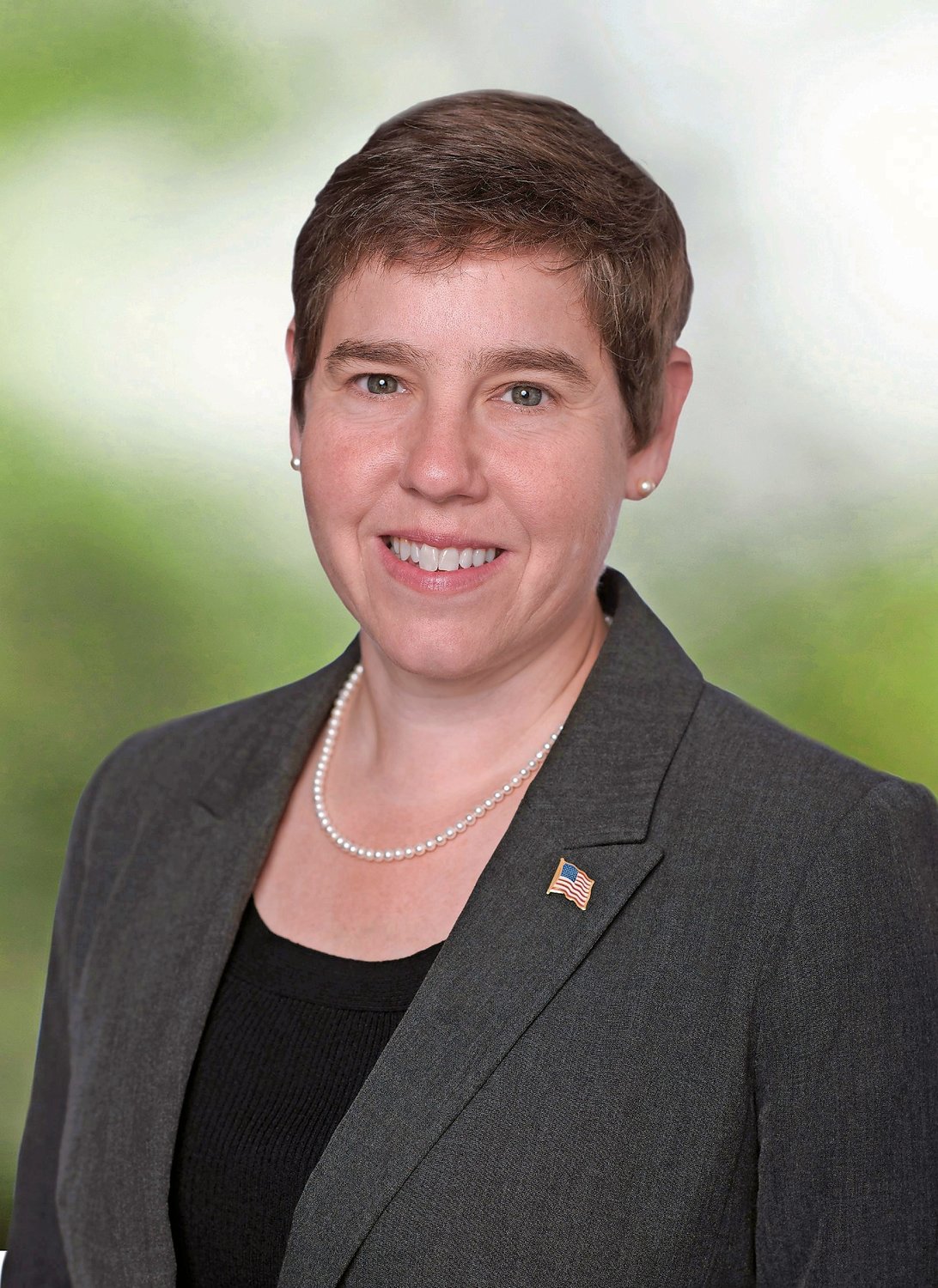Glen Cove City officials ask Councilwoman Marsha Silverman to resign
Glen Cove Mayor Tim Tenke and other members of the City Council recently sent a letter to Councilwoman Marsha Silverman, asking her to resign if her wife, Roni Epstein, does not withdraw a legal challenge that she filed over the Livingston Villa development.
Silverman held a news conference Jan. 29 to alert the public about the letter.
The letter, Silverman said, stated that she had until 5 p.m. Monday to decide. During the news conference, which began at 4:30 p.m., she said she would not resign, nor would Epstein withdraw her Article 78 proceeding, a legal filing challenging a government action.
The city is arguing that since Epstein, an energy regulatory attorney, is challenging a decision of the city Planning Board, the City Council, the 135 Glen Cove Ave. Corp., the Livingston Development Corp., City Clerk Gaspare Tumminello and City Attorney Gregory Kalnitsky, Silverman’s presence on the council presents a conflict of interest, because she and Epstein are married.
Epstein’s petition is a response to a decision made by the planning board at a Nov. 21 meeting, when it approved Livingston’s proposal to change the 176-unit development from condominiums to rental units. The petition contends that the development’s site plan is not valid because a subdivision was not created.
Tenke said the council’s letter was not intended to instigate a legal fight between Silverman and the council. His main goal, he said, was to avoid spending more city money on lawsuits over the Livingston development, he said, because the last one cost roughly $250,000, although Livingston reimbursed the money.
Silverman and Epstein’s home is adjacent to the development, on Rooney Court. They have legally challenged aspects of the project since 2016, before Silverman was elected to the council in October 2017. But the project was brought before the council again in 2019, and several times since. Silverman has recused herself from all discussions on it, which she said protects her from any accusations of conflict of interest.
The latest petition, filed late last year, is the third by Epstein against Livingston. The first two, filed in 2016 by Silverman and Epstein, resulted in a lawsuit that was dismissed in October 2017. They sought to appeal the dismissal, but Livingston sued them for defamation. That suit was dismissed in January 2020, and Livingston appealed. That appeal has yet to be heard.
Silverman said that the Jan. 29 letter was an ultimatum, threatening that if she did not resign or Epstein did not withdraw her suit, there would be “further escalation of the issue.”
“I have decided to make this matter public because if a strong-arming tactic such as this can be attempted against me, a duly elected official, think about its impact on the average citizen and their willingness to assert their rights,” Silverman said. “Many members of the community have expressed to me their concern about speaking out for just this reason. Any action taken that suppresses meaningful public participation is not supportive of a democratic society.”
Tenke said the letter was not intended to challenge the merits of Epstein’s legal filing, and added that she was within her rights to file a complaint about a decision made by the city government.
“It was basically to inform her of the conflict and provide her with an opportunity to address it prior to the city incurring any expenses with regard to this,” Tenke explained.
He added that the Feb. 1 5 p.m. notice was not a hard deadline, but more an indication of when the council wanted to hear of her decision. This was to eliminate the need for an emergency council meeting on Tuesday night, which ended up taking place, he said.
Silverman recused herself from all discussions during the emergency meeting. Tenke and the remaining six council members voted unanimously to retain Leventhal, Mullaney & Blinkoff, LLP and Chase, Rathkopf & Chase, LLP as counsel for the case.
Epstein spoke during the public comment portion of the meeting, arguing that the mayor and the council were saying, essentially, that she could not petition the government. She and Silverman are two different people, she said, so Silverman is not inherently a part of the case. Epstein also said that Silverman’s recusal is enough to satisfy the law.
“If she’s not voting and nobody on the council is speaking to her and she’s not speaking to them about this matter,” Epstein said, “how is she having any impact over it whatsoever?”
The last person to speak during public comment was Frederick Eisenbud, Epstein’s attorney. He pointed to a section of the city ethics code that states that a municipal employee cannot be barred from making a claim against the city or one of its agencies. This, Eisenbud said, shows that the city is violating Silverman’s rights as a citizen by asking for her resignation.
Kalnitsky, the city attorney, said that Article 18, a state law, states that no municipal officer can have an interest in any contract issued against the municipality. Since this is state law, Kalnitsky said, it supersedes city code.
According to Section 800 of Article 18, a municipal officer is deemed to have an interest in a contract if his or her spouse is involved.
After the meeting, Eisenbud said that Article 18 does not say anything about an officer being forced to resign in an instance of potential conflict of interest, and that Silverman’s recusal from discussions about the case is the required remedy. This, he said, means the city does not have a right to ask Silverman to resign. Eisenbud also said that asking Epstein to withdraw her petition violates her First Amendment rights.
Tenke said that all of the legal arguments would be decided by the courts, and he would not act immediately to remove Silverman from office.






